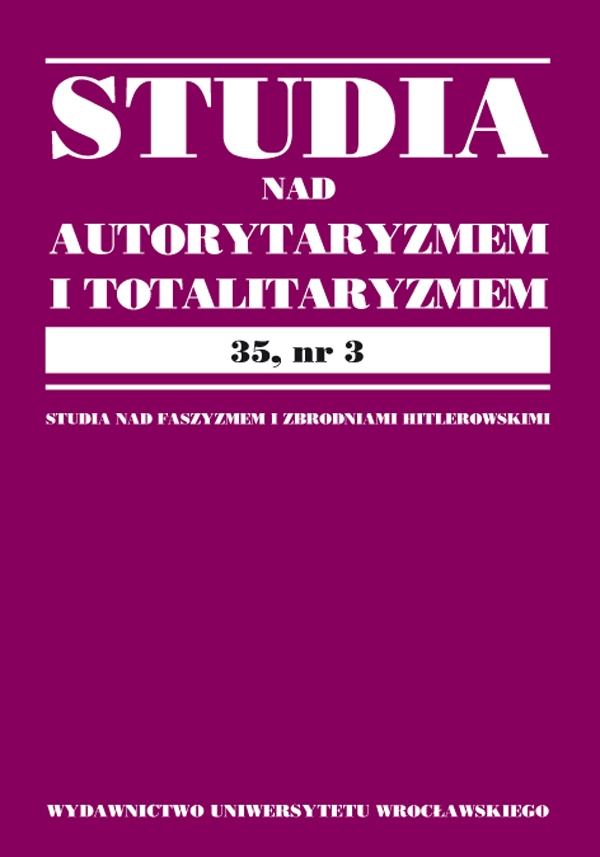

Artykuły

ANTI-SEMITISM, IMPERIALISM AND AUTHORITARIANISM IN THE POLITICAL THOUGHT OF FRANCESCO COPPOLA 1908–1923
The paper presents political conceptions of Francesco Coppola 1878–1957, an Italian lawyer and one of the most prominent representatives of Associazione Nazionalista Italiana during the 1908–1923 period. Coppola was a representative of the so-called “second generation of Italian Nationalists” and an exponent of a conservative faction of the Association of Italian Nationalists, gathered around the journal L’Idea Nazionale. In his articles, published in journals such as L’Idea Nazionale and La Tribuna, he put forward his antidemocratic, anti-socialist and antisyndicalist conceptions. His articles, written during the 1911–1912 period, espousing anti-Semitic character, led to a breakup of the Association of Italian Nationalists and to the leaving of AIN by the supporters of the democratic section of the movement during its Second Congress in Rome in 1912. After an outbreak of an armed conflict with Turkey in 1911, the question of war, understood as an instrument of achieving power and as a remedy to the most serious problems plaguing contemporary Italian society, became the main focus of Coppola’s considerations. Such a way of conceiving the category of war coincided with his vision of Imperialist foreign policy, formulated in “Program Manifesto,” published in the journal La Politica, which he established together with Alfredo Rocco in 1918. According to his conceptions, international relations were based on a principle of constant antagonism, rivalry, competition and confl ict. He was an advocate of the idea of a strong government and postulated maintaining the leading position of the bourgeoisie in the social hierarchy and in a process of governance. During the period of revolutionary tension in Italy after the First World War so-called “biennio rossio” he expressed his support for the emerging Fascist movement, positively evaluating its catchwords concerning the defense of a social system, hierarchy and state’s authority and its anti-Bolshevik ideology.